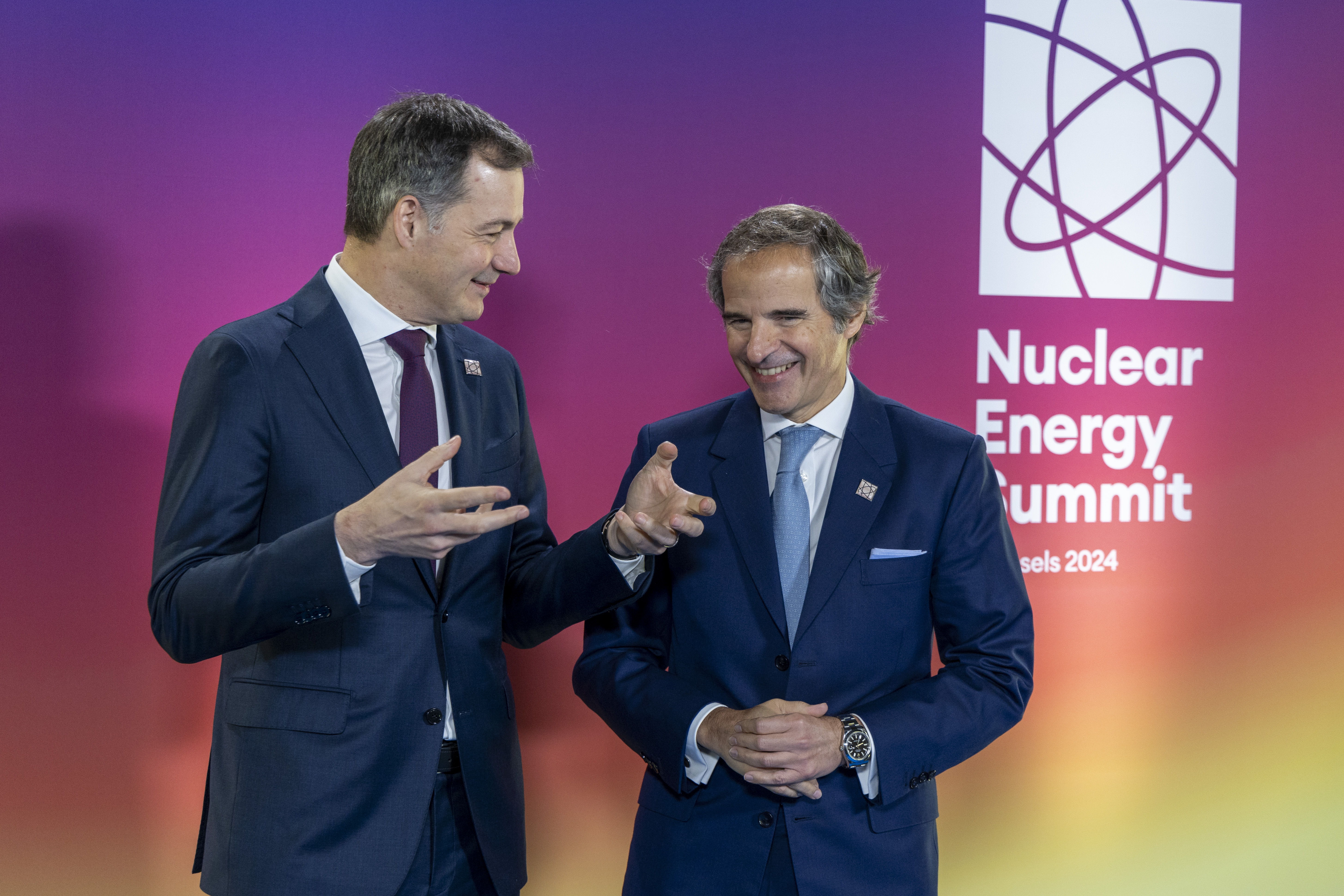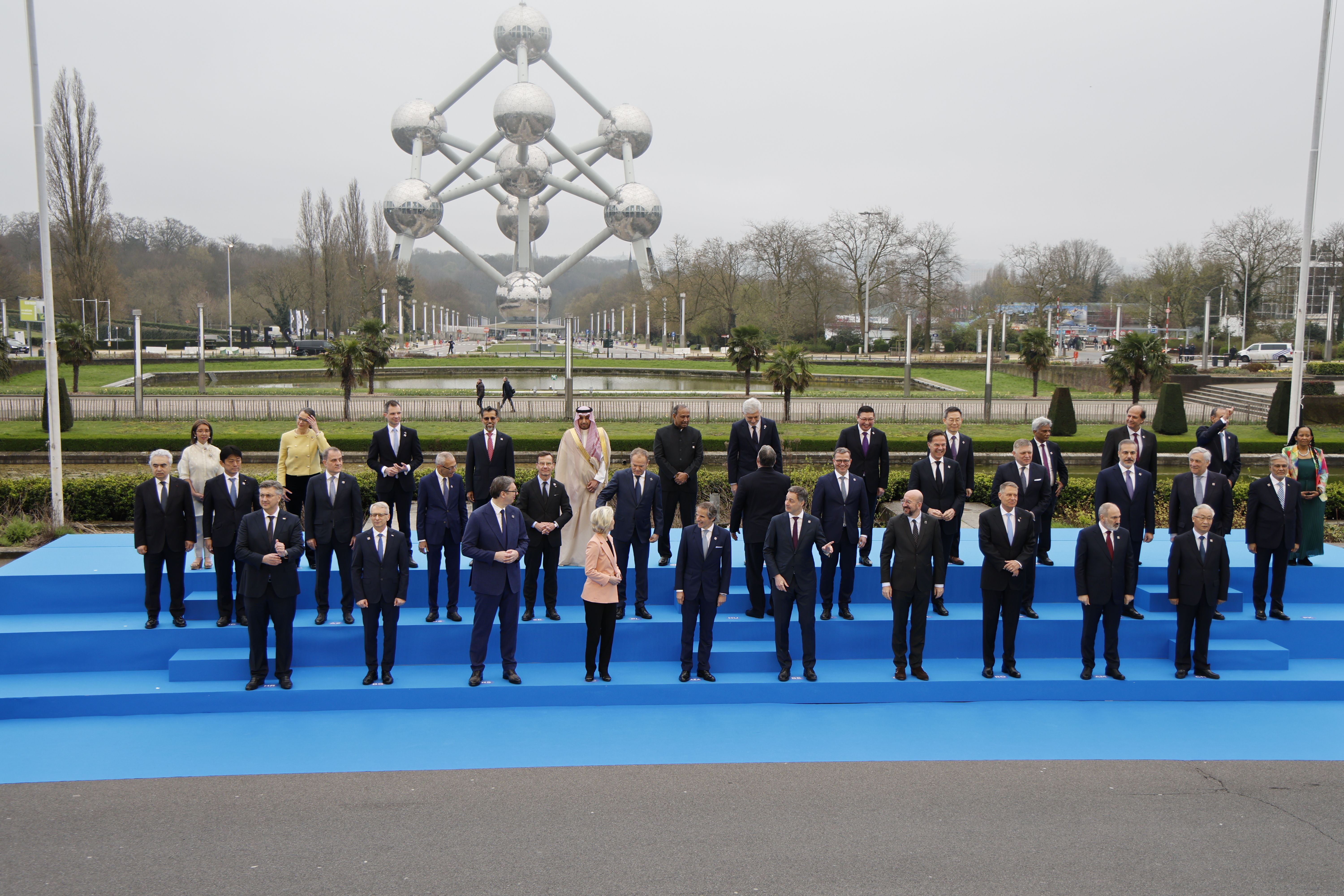Nuclear declaration adopted by over 30 countries at first nuclear energy summit

More than 30 countries, including Belgium, adopted the Nuclear Energy Declaration on Thursday at the first nuclear energy summit at Heysel in Brussels.
The declaration denotes nuclear energy as a "key component in the global strategy to reduce greenhouse gas emissions". It states: “Nuclear energy is essential to ensure energy security, increase energy resilience and promote long-term sustainable development and the clean energy transition."
Belgian prime minister Alexander De Croo attended the summit and described nuclear energy as a form of "sustainable energy" available in "enormous, safe and reliable quantities."
He said he supported extending the lifespan of Belgium's Doel 4 and Tihange 3 reactors by 20 years instead of the 10-year extension decided by the current government: "Nuclear energy is part of the solution to achieving net-zero emissions by 2050."
In the statement, the countries recognise that nuclear energy was explicitly mentioned for the first time among the measures to reduce greenhouse gas emissions at the last UN climate summit, COP28. In addition, they reiterate the goal of tripling nuclear energy capacity by 2050.

Nuclear energy accounts for about 10 per cent of the world's electricity supply, with 370 gigawatts generated in 413 nuclear power plants in 31 countries. Thirty more countries are considering using nuclear energy in the energy transition, while several countries - including Belgium - are considering extending or have already extended the life of existing power plants.
It also reaffirms the commitment to dispose of nuclear waste in a "safe and sustainable" manner, in particular through deep geological disposal. Finally, the declaration also calls on the International Atomic Energy Agency to organise a new summit on nuclear energy "in due course".
The document was endorsed by 33 countries: Argentina, Armenia, Bangladesh, Belgium, Brazil, Bulgaria, Canada, China, Egypt, the Philippines, Finland, France, Hungary, India, Italy, Japan, Kazakhstan, Croatia, the Netherlands, Pakistan, Poland, Romania, Serbia, Slovakia, Slovenia, Czechia, Turkey, the United Arab Emirates, the UK, the US, South Africa, South Korea and Sweden.
Belgian prime minister Alexander De Croo and IAEA director general Rafael Mariano Grossi at the summit © BELGA PHOTO NICOLAS MAETERLINCK
Related news

